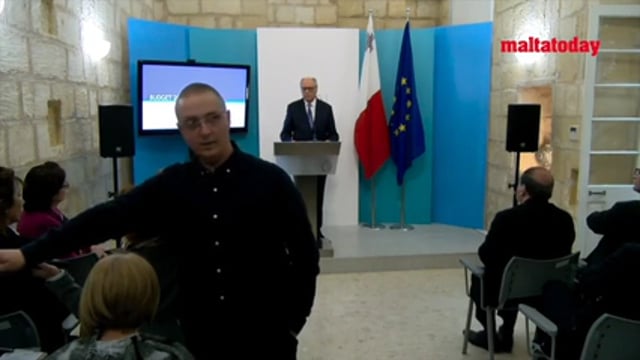[WATCH] Finance Minister pours cold water on Robert Abela’s tax change proposal
Edward Scicluna says Malta must not give up its tax system after leadership contender Robert Abela proposes removing tax benefit for foreign companies competing with Maltese


Edward Scicluna has poured cold water on a proposal made by Labour leadership contender Robert Abela to remove the tax advantage for foreign companies.
The Finance Minister said the issue raised by Abela during last week’s Xarabank debate is a concern put forward by the GRTU on behalf of small business operators who believe they are at a disadvantage when competing with foreign companies in Malta.
Abela said in the TV programme that foreign businesses competing with Maltese should not have a nominal 5% tax rate and that he would be taking on board concerns by Maltese businesses on foreign competitors qualifying for handsome tax rebates in Malta.

READ ALSO: Foreign businesses competing with Maltese should not have 5% tax rate, Abela says
The leadership candidate called for a level playing field.
The proposal raised eyebrows because it would tinker with the competitive Maltese tax regime that has come under increased spotlight in the EU over recent years.
Malta has always defended its tax regime, which was approved by the European Commission during accession negotiations.
Asked about Abela’s proposal, Scicluna clarified that while it was true that companies with foreign shareholders get a tax refund when they transfer profits here, they are still obliged to pay tax in their own countries.
“The situation is not entirely as the GRTU makes it out to be... it is not that all foreign businesses in Malta are paying 5% and their Maltese counterparts are paying 35%,” he said, adding that the country had to balance the competitiveness of its tax regime with ensuring a level playing field.
“We have to see how to address the issues raised by the GRTU… but we are not going to willingly give up a tax system that is valid and accepted by the EU and over which Brussels has no jurisdiction,” Scicluna said when addressing the question during a press conference held on Wednesday morning.
IIP may need some changes
Replying to a question on a pledge made by the other leadership contender, Chris Fearne, to stop the Individual Investor Programme once the scheme is exhausted, Scicluna said the programme may need some changes.
Scicluna said public finances did not depend on income from the scheme to achieve a surplus.
“The budget is designed to achieve a surplus without income from the scheme. Whatever additional income is derived from the IIP adds to the surplus,” Scicluna said.
He added that Malta’s citizenship scheme was unfairly targeted when other countries like Cyprus had similar programmes.

“It is my opinion that we should review it. We have to see what we can eliminate from it and leave those things that are good for the country. It is my impression that even the Opposition has not said that it wants to scrap it completely. Everybody wishes the scheme to continue in an acceptable way,” Scicluna said.
Fearne has pledged not to renew the IIP in its current form when the capping limit is reached, insisting on changes to the scheme that has earned Malta rebuke from various European quarters.
Abela has insisted that he will renew the scheme, adding that the income derived from it has been used for beneficial projects such as social housing.
Only a portion of income derived from the IIP is included in the yearly budget with the bulk of the funds being directed into a National Development and Social Fund, which is managed separately from public finances and is akin to a sovereign wealth fund.
Scicluna said that he had instructed ministry officials to prepare a dossier on pending issues related to public finances, which he would present to the incoming prime minister for consideration.
One of the issues he will be raising is strengthening the government procurement system.






.jpg)












.jpeg)


